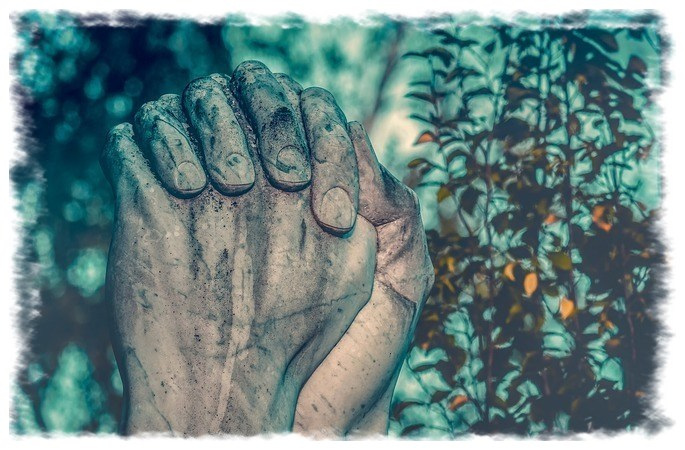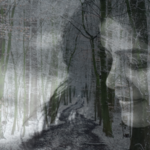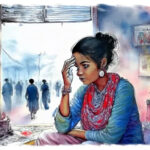It was a humid Saturday afternoon.
The mugginess around had caressed most of my friends at God’s Children into an untimely siesta. Sister, in her white habit, too, was busy sleeping. The cleaning lady, Domenica,
had taken the day off. I was lolling on my cot, trying to nudge myself to sleep by counting backwards from 100 to 1 when my eyes veered towards the window next to my bed. Just outside, a mutiny of leaves was on display and underneath this copious dazzle of green and yellow, a crawling exhibit of twigs and branches had taken shape. I caught myself blinking at an unexpected occurrence. A flight of motion had inserted its way into the stillness in the form of a preening myna. It perched on a treetop and then flew away at will. A curfew was in order.
I turned around and saw that like me, Foster was also awake. To make amends for our current state, we tiptoed our way through the drawing room and perched ourselves onto the arc-shaped verandah that fore-fronted the house quite grandly. The distance between the verandah and the gate was manicured with neat prefectures of seasonal blooms. This season’s flourish of marigold was quite well-heeled.
I was perusing through the splendour when a ravenous force usurped me to the ground. It happened to be Foster. She had captured me in a throttle. Her limbs manoeuvred around my body and her paws having firmed up around my throat now dug into it, with such vehemence that my flailing legs had turned mute. My vision was constricting when I felt a firm grip of somebody’s hands upon me. I saw a floating face as I closed my eyes on her.
It was only five years ago that God’s Children came sharply into existence. The two-storied structure positioned at the end of a cul-de-sac was cornered far away from the busy part of the town. The structure initially served its purpose as a prayer centre. All that changed when one night Sister woke to the callings of a colicky child left abandoned by the door. An indelible wound was seared on her forehead, the pain making itself known through her inconsolable sobs that penetrated the night’s audacity. Sister tried to rear her back to life. It was her loss that made way for the others. And then there was Foster, a just-born puppy who strayed into our lives in a state of disarray.
Our boats might have been different but we all arrived abandoned, bobbing at the threshold of insecurity, and to us, that was our shared attribute.
It was Sister who took us in and mothered us since our unprejudiced days. Her tender hands anointed us with kindness, and her conversations padded our days with playful companionship.
Ten of us were banded into two rooms. Small office space was restored to accommodate Sister where she worked by day and lived by night. A quiet corner room was proclaimed as a chapel and the only big room was filled with accumulated paraphernalia to engage us into useful pursuits.
The orphanage ensconced within the spared greenery of an otherwise industrial town privileged our lives with harmony. The chirping sparrows and cooing pigeons contributed disjointedly to the relentless chirps of the robins. A display of pageantry strutted through the existing landscape when the family of a neighbourhood peacock and his six peahens freewheeled their way into the showground dense with foliage. Often Foster and I whiled away our prolific hours listening to the surrounding soundscape. Until the consequence of her action proved debilitating, she and I had stood inseparable.
Foster was not to be seen again. Time had palliated out the prick that her absence had caused. A month had gone by. I was getting used to her void, and then one afternoon a shiny black car with tinted windows arrived by the gate.
The faint buzz of the approaching vehicle imbued us with curiosity and mobilized us to the verandah. An utterly beautiful woman, richly accoutered with round, dangling earrings, wearing a frock embellished with variegated shades of orange and yellow stepped out of the car. She looked like an autumn muse. The staccato rhythm spawned by the clicking of her heels approached us with firmness. The first time I had seen her, the contours of her face had appeared blurry. The salty teardrops had deducted the sharpness of her cheekbones, but today under fine conditions they jutted out gloriously.
Her name was Hope.
Hope started spending her days with us until the twilight hour cast its first glance, which is when the car arrived by the gate to ferry her back.
Her charitable gestures gratified us with pleasures that until recently were largely unknown to us. Now we had fancy toys that mimicked words and candies that fructified into flavour fireworks. But it was the weekend that we most looked forward to.
A witty raconteur of stories, she tailored colourful beads of narration to patch our empty hours. She told us about far-fetched lands with sun-kissed beaches where the water was the colour of the sky and of verdure so green that it hurt your eyes.
One morning, while I was suspending myself inverted from the curlicues that adorned the main gate of the orphanage, a sudden advent of a car took me by surprise. It was a bigger, shinier car, different-looking from the one she used. A man with a receding hairline was accompanying her. A pencil moustache ran close to his upper lip. He carried an overall appearance of someone stern. His smile suffered from a severe lack of tenderness.
Sister walked out of her room to greet them. She was garbed in her usual white, carrying prayer beads that sanctified her simplicity.
Over the next few days, Sister exhorted me to be good with my manners. She tailored a new dress for me. It was a plain white frock spirited with red borders. My many years in the orphanage collated into three suitcases.
The new day arrived. The thin rays of the morning sun had made way through the chinks in the roof. Outside, birds tossed around in frenzy. Sister and I stood near the door, waiting for the arrivals. The passing time articulated itself uneventfully, and in between our nervous strolls, we had missed the arrival of the twilight.
No one ever mentioned it again.
A month had gone by.
I didn’t know what to make of this absence until
one day Domenica brought some clarity to the vagueness.
I caught the words as they poured out in a blurt.
“It had to do with someone born of her blood.”



